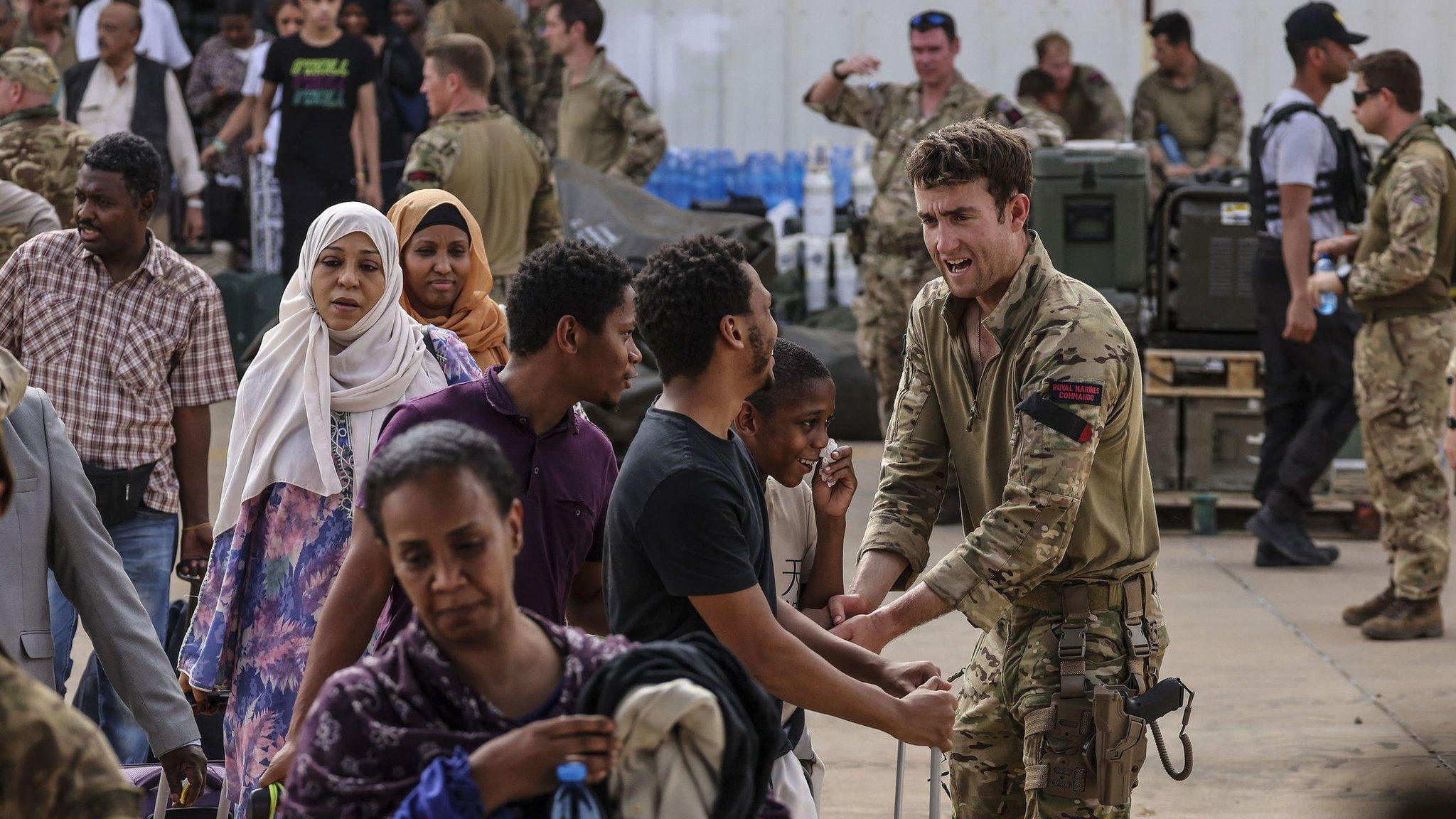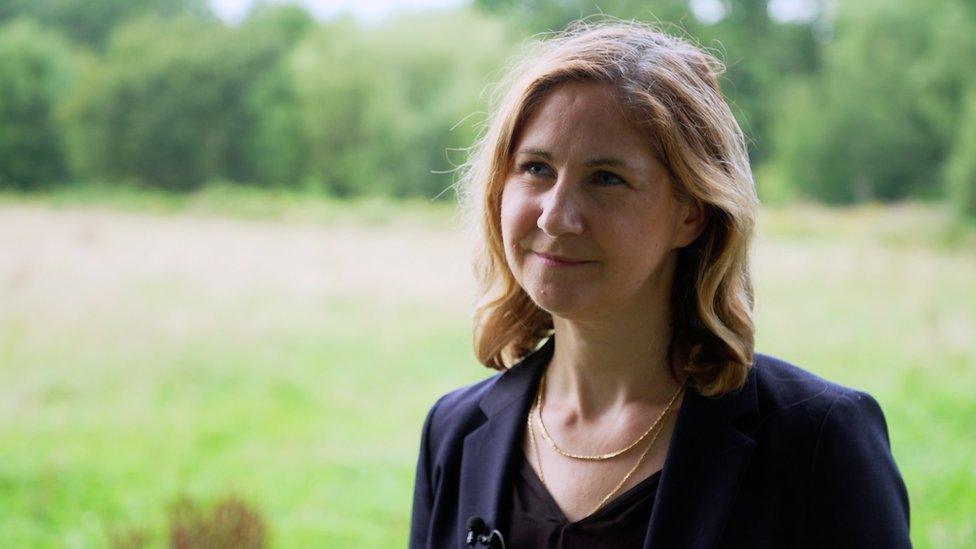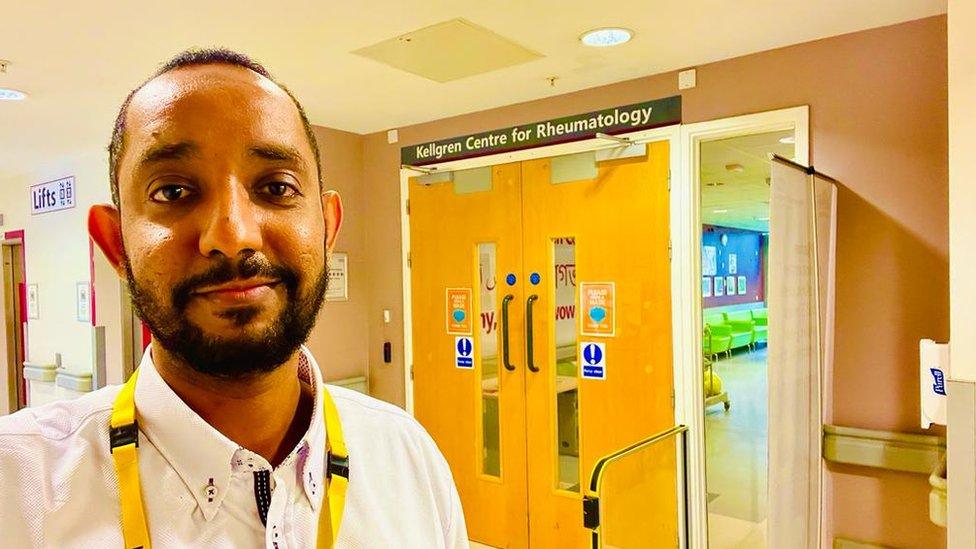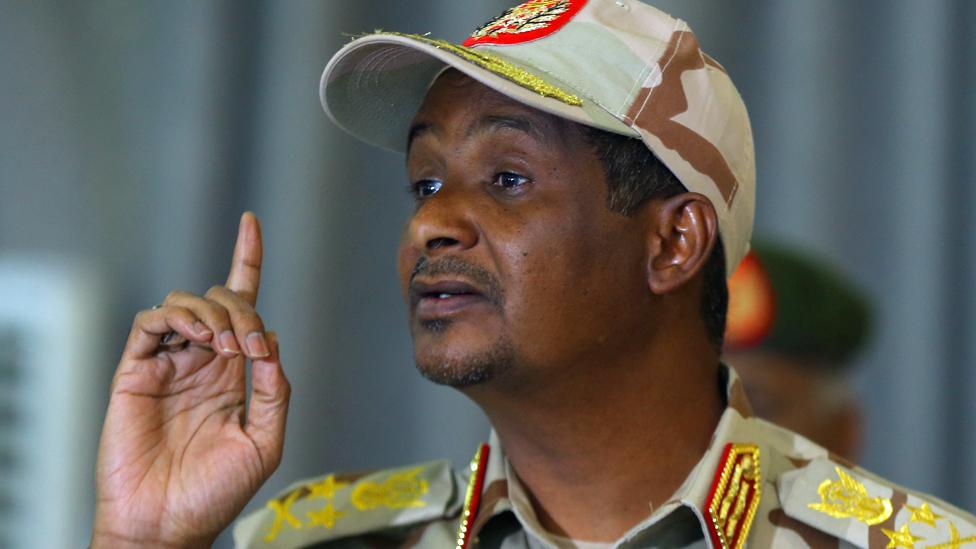Sudan crisis: Fleeing family treated in appalling manner, MP says
- Published

British military personnel help Britain nationals board flights at Wadi Seidna Air Base in Khartoum
An MP has criticised the "appalling" treatment of a family split-up by UK authorities as they tried to flee Sudan.
Nagla, 59, and daughter, Sara, 23, tried to fly out of Khartoum together.
But the two women were forced to leave behind Nagla's husband Asmed, 62, because he doesn't have a British passport or UK visa.
The UK government said it was evacuating British nationals and eligible immediate family members.
Fighting erupted in capital Khartoum two weeks ago due to a power struggle within the Sudan's military leadership.
Sara's sister, Alaa, 29, from Cardiff, and other family members are due to meet them on their return to London Stansted Airport on Saturday.
Alaa, who did not want to give the family surname, said her father was told he would have to travel hundreds of miles to neighbouring Egypt to get a visa so he could follow his family to the UK.
Cardiff North MP Anna McMorrin said the treatment of the family by British authorities was "shocking".
She said: "We need to show more compassion to support families to make sure that dependents are brought over as well.

Anna McMorrin: "It's pretty appalling the way they have been treated"
"He does not have citizenship, he has a Sudanese passport. The family have UK passports, his wife and daughters, but they were living in Sudan.
"They should not be splitting families up. At the very least he should be supported to get out to a third party country and his paperwork can be processed.
"This is splitting families up and leaving them with no hope. This is happening to many families because (of) Home Office and Foreign and Commonwealth Office rules."
The political climate, the MP said, was "splitting up families".
She claimed Nagla was initially put on a flight but she refused to leave without her daughter and husband.
"The next day they were refused entry to the airbase because the dad was with them," said Ms McMorrin.
"Dad then basically forced them to go [without him]. He's there without support.
"He was told to go to Egypt. How's he supposed to do that?"
Allow X content?
This article contains content provided by X. We ask for your permission before anything is loaded, as they may be using cookies and other technologies. You may want to read X’s cookie policy, external and privacy policy, external before accepting. To view this content choose ‘accept and continue’.

Alaa said she and her other siblings were worried about their father's welfare.
She said the trio had expected to leave Sudan together and gave away their food and drink, but it took three days for the two women to board a flight.
She said she was concerned her father's mobile phone would run out of battery as getting access to electricity supplies was an issue.
"They told him he has to go to Egypt and apply for a visa from there," she said.
"It's very hard to get someone to take you there."
A UK government spokesperson said: "We are evacuating British nationals and their immediate family members who have existing eligibility to enter the UK. Those who have UK visas but are not the dependent of a British passport holder can still come to the UK via other routes.
"We are keeping this under close review and recognise that there will be many people facing very challenging circumstances and decisions.
"We continue to work intensively, alongside international partners, to maintain the ceasefire and bring an end to fighting - the single most important thing we can do to ensure the safety of British nationals and others in Sudan."
Related topics
- Published29 April 2023

- Published29 April 2023

- Published24 April 2023
